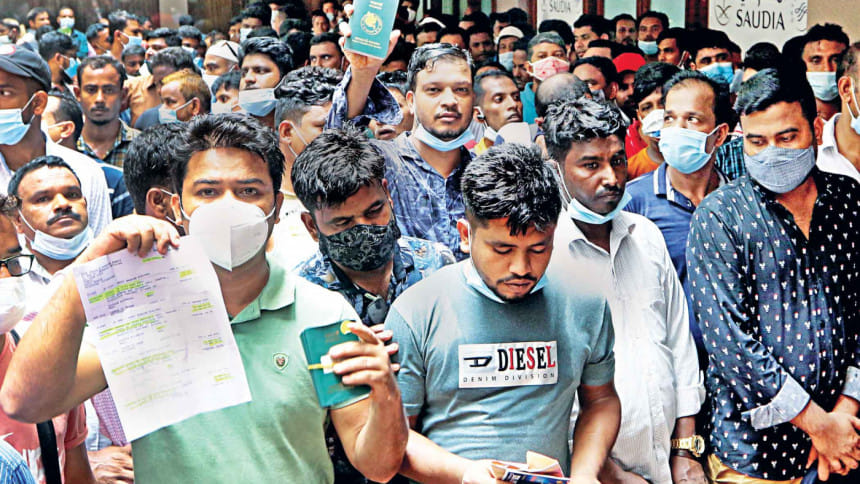Saudi Arabia’s new travel advisory

Expatriate workers are among the worst affected by the pandemic. They have had to suffer the consequences since the start of the pandemic and they continue to suffer. Given that the Middle East employs the largest number of Bangladeshi workers, and we get the largest chunk of foreign exchange from that region, the Covid-19 induced disruptions affect the workers as well as our foreign exchange reserves.
While it is not surprising that individual countries would put in place such health and safety measures as they deem necessary and appropriate, when those countries happen to also employ a huge number of foreign workers, the consequences go beyond the borders of that country. We are now encountering another such consequence, with Saudi Arabia issuing a fresh travel advisory that came into effect from May 20 for citizens of non-restricted countries, including Bangladesh, which mandates possession of medical insurance for Covid-19 and hotel reservations for institutional quarantine. The new Saudi health safety requirements are likely to affect 6,500 expatriate workers. Violation of the requirements carries very harsh penalties like deportation and permanent ban on re-entry.
The new advisory would require between Tk 60,000 and Tk 70,000 for institutional quarantine—something that an expatriate worker may not be able to come by easily or quickly. We believe that our government should step in to ameliorate the sufferings the new advisory will cause. The relevant ministry should help in arranging money for both the insurance and the cost of hotel quarantine or visitors to the Kingdom. It is the time, if ever there was any, for the ministry of expatriates' welfare to live up to its name, and do something for the welfare of the affected expatriate workers. Reportedly, there are several hundred crores of taka remaining idle in the Wage Earners' Welfare Fund, and the expenses accrued by expat workers due to the new travel advisory could be defrayed from this account.
We hope that the ministry will respond and react positively to the letter from recruiting agencies to the ministry seeking support in this regard. We also believe that the government should accord priority to these workers for vaccination. This might obviate the need for institutional quarantine.

 For all latest news, follow The Daily Star's Google News channel.
For all latest news, follow The Daily Star's Google News channel. 



Comments